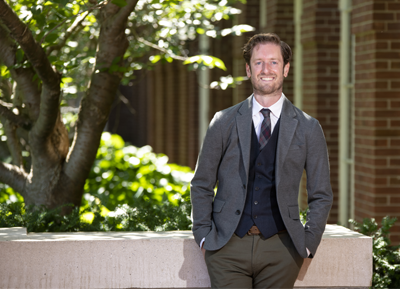The Residue of Eden: Myth and Medicine in Early Christian Anointing Practices
Presented By
Byzantinte Dialogues from the Gennadius
The Gennadius Library, American School of Classical Studies at Athens
Speaker(s)
John David Penniman, Bucknell University, Pennsylvania & NEH Fellow, ASCSA
Location
ASCSA Cotsen Hall - Hybrid Lectures, Anapiron Polemou 9, Athens 106 76Anapiron Polemou 9
Athens 106 76
Contact
210-72.10.536 (ext. 301)The lecture will be in English
By registering you will be able to submit your questions through Q&A on Zoom.
** Guests attending Cotsen Hall events are required to wear a mask and to present valid COVID-19 vaccination certificates or certificates of recovery (valid for 180 days) along with ID.
About the Lecture
Olive oil was one of the most popular pharmacological substances in the ancient Mediterranean world. It appears pervasively in medical handbooks, magical incantations, cultic healing rituals, hygiene guidelines, and accessories for personal adornment. As a drug (pharmakon) with wide application, olive oil provides an interesting case study for exploring the borderlands between religious ritual and medical regimen.
This talk will offer a re-interpretation of the literary and material evidence surrounding early Christian anointing practices in light of the pharmacological power of olive oil. Moving between medical, magical, and cultic contexts in the broader Greco-Roman world, Professor Penniman will first explore the particular potencies that olive oil was thought to possess. Then, he will analyze how olive oil was moralized, medicalized, and mythologized within the early Christian community’s understanding of its own practices. Next, he will look at the material evidence of anointing from late ancient Christianity, with particular attention to the use of ampullae (or pilgrim flasks). Finally, Professor Penniman will consider how we might re-interpret these objects in light of a pharmacological approach to olive oil and will suggest that the ritual efficacy of early Christian practices -such as anointing- depended upon the pharmacological efficacy of the drugs that Christians used.
About the Speaker
John Penniman is Associate Professor of Religious Studies at Bucknell University in Pennsylvania, where he teaches courses in the history of Christianity and in theories of religion. His research focuses on the religious world of late antiquity, with particular interest in the development of early Christianity out of the cultural worlds of Greece and Rome. His first book, Raised on Christian Milk: Food and the Formation of the Soul in Early Christianity (Yale Press 2017), considers how food functioned as a marker of identity in early Christianity. Highlighting especially the symbolic power of mother’s milk in the Roman world, this book argues that early Christian authors invested milk with the power to convey kinship, intellectual capacity, social status,  proper moral and physical formation, and even orthodox belief from one person to the next. His current book project, tentatively titled The Hands of God: A Pharmacological History of Early Christianity, offers a re-reading of early Christian ritual in which the primary substances used (wine, water, bread, oil, incense) in Christian practice are situated within the pharmacological cultures of the ancient Mediterranean. Starting in the fall of 2022, Professor Penniman will be the project director of a three-year grant from the National Endowment for the Humanities (NEH) to create a Medical Humanities program at Bucknell. He is currently an NEH Fellow at the ASCSA.
proper moral and physical formation, and even orthodox belief from one person to the next. His current book project, tentatively titled The Hands of God: A Pharmacological History of Early Christianity, offers a re-reading of early Christian ritual in which the primary substances used (wine, water, bread, oil, incense) in Christian practice are situated within the pharmacological cultures of the ancient Mediterranean. Starting in the fall of 2022, Professor Penniman will be the project director of a three-year grant from the National Endowment for the Humanities (NEH) to create a Medical Humanities program at Bucknell. He is currently an NEH Fellow at the ASCSA.